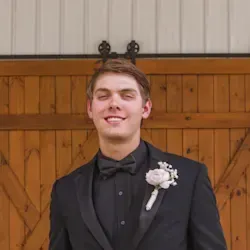Supercharge your solar or real estate business with GoHighLevel today!
Unlock the potential for explosive growth in your solar or real estate business! Whether you're in the solar industry, real estate, or both, our GoHighLevel solutions can revolutionize your operations.

180+
GHL PROJECT HAS BEEN DONE

20.5
SNAPSHOT HAVE BEEN BUILT

5150
WORLDWIDE

1800+
CLIENT HAVE BEEN SERTISFILD
What I Can Do for You:
🚀 GoHighLevel Setup and Optimization: I'll set up and configure GoHighLevel to align with your business goals, ensuring you make the most of this powerful platform.
📊 Snapshot Creation: Let me help you create stunning snapshots that provide a clear, visual representation of your business's performance. These snapshots can include metrics, analytics, and KPIs to keep you informed and on track.
📈 Business Growth: With my expertise, you can expect improved lead conversion, increased customer engagement, and ultimately, higher ROI. I'll work closely with you to achieve measurable results.
🔒 Data Security: Your business data is precious, and I take data security seriously. You can trust me to handle your information with the utmost care and confidentiality.
Why Choose Me?
✅ GoHighLevel Expertise: I have a deep understanding of GoHighLevel's capabilities and can harness its potential to streamline your business operations and maximize your efficiency.
✅ Industry Focus: Whether you're in the Solar, Real Estate, or Loan industry, I have the expertise and experience to help you leverage GoHighLevel's features to boost your marketing efforts, lead generation, and customer management.
✅Customized Solutions: No two businesses are the same. I take the time to understand your unique goals and challenges and tailor my services to suit your exact requirements.
✅Snapshot Solutions: I offer a range of pre-built snapshot templates for various business scenarios, making it easier than ever to visualize and analyze your data. Whether it's lead tracking, sales performance, or customer engagement, I've got you covered.
Unlock the Power of GoHighLevel for Your Solar, Real Estate, or Loan Business!

Real Estate
Welcome to GFTECHCONCEPT, your trusted partner for GoHighLevel management and custom snapshot creation. If you're in the Real Estate Industry we have the expertise you need to supercharge your business.

Solar Company
Welcome to GFTECHCONCEPT, your trusted partner for GoHighLevel management and custom snapshot creation. If you're in the Solar Industry we have the expertise you need to supercharge your business.

Loan industry
Welcome to GFTECHCONCEPT, your trusted partner for GoHighLevel management and custom snapshot creation. If you're in the Loan Industry we have the expertise you need to supercharge your business.
PROJECTS
Latest Projects, Solutions And Snapshot
I agree to receive one of our News Letter provided by the company. By providing my phone number, I agree to receive text messages from the business.
WHO WE ARE
As a seasoned professional in website design, I specialize in creating captivating online experiences. From crafting stunning GHL, ClickFunnels, and Client Portals to personalizing and white-labeling your GHL interface, my expertise extends to optimizing Pipeline Pro and GHL Automation processes. I excel in architecting Sales Funnels that drive conversions and Lead Generation strategies that fuel growth. With an eye for detail, I construct engaging Landing Pages and intuitive Client Portals. My proficiency also covers FG Funnels, Email Automation, and SAAS integration Contact now!!!
TESTIMONIALS
What Clients Say About Us
AWARDS
Awards And Achievements
PROFESSIONAL
GHL EXPER









